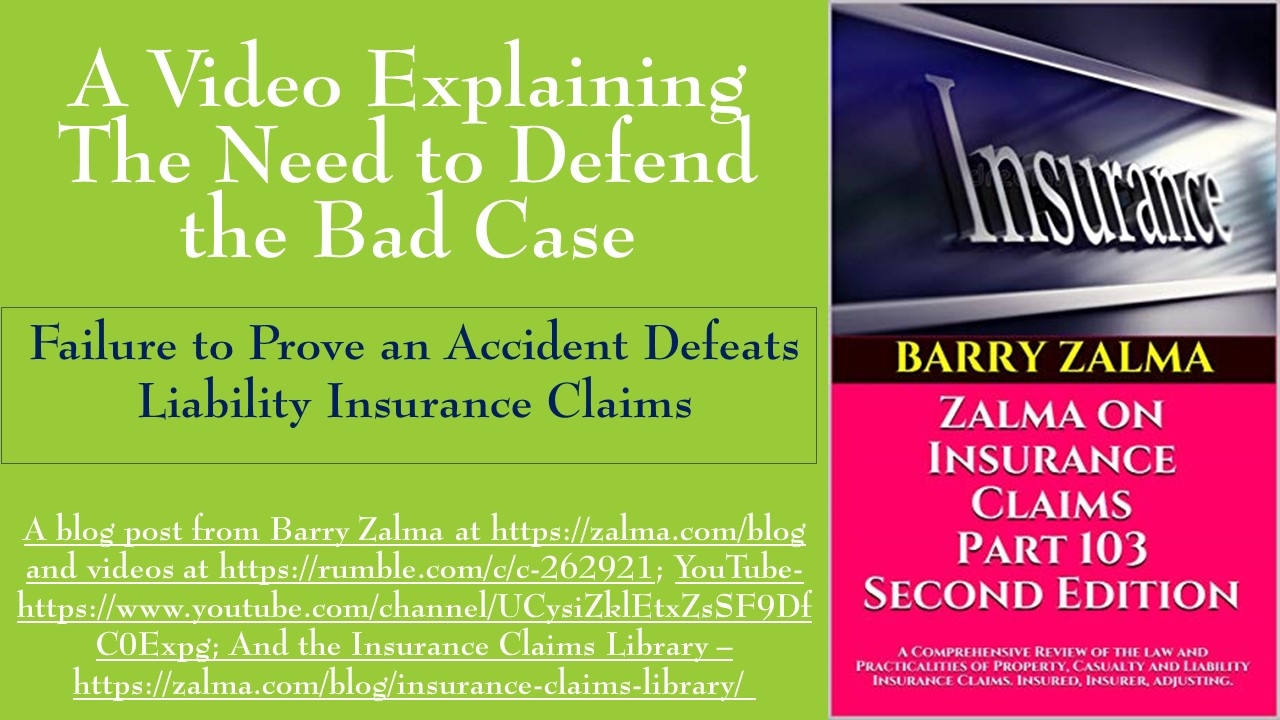-
News Feed
- EXPLORE
-
Pages
-
Groups
-
Events
-
Blogs
-
Marketplace
-
Offers
-
Jobs
-
Developers
A Video Explaining the Failure to Prove an Accident Defeats Liability Claim

Failure to Prove an Accident Defeats Liability Insurance Claims Read the full article at https://www.linkedin.com/pulse/video-explaining-need-defend-bad-case-barry-zalma-esq-cfe and see the full video at https://rumble.com/vdx1jr-a-video-explaining-the-need-to-defend-the-bad-case.html and https://youtu.be/iLYMdvHxIZU and at https://zalma.com/blog plus more than 3600 posts. The duty to defend is not limited to cases where the suit against the insured is viable. The duty extends to those that are brought against the insured that are bad, false, or fraudulent. In Wild v. Subscription Plus, Inc., 292 F.3d 526 (7th Cir. 05/31/2002) the Seventh Circuit was faced with a dispute over the duty to defend when there was a finding that the insurer, Scottsdale, had no duty to indemnify the two insureds, because the accident was not covered by the policy after all. Scottsdale appealed the judgment that it had a duty to defend. It also appealed from the court’s correlative order, based on Oklahoma insurance law, that it reimburse the insureds for the expense of defending against the tort suit. An insured has the burden of proving that a claim falls within the coverage of the policy. Addison Insurance Co. v. Fay, 376 Ill.App.3d 85, 88, 314 Ill.Dec. 680, 875 N.E.2d 190 (2007).
We are 100% funded for October.
Thanks to everyone who helped out. 🥰
Xephula monthly operating expenses for 2024 - Server: $143/month - Backup Software: $6/month - Object Storage: $6/month - SMTP Service: $10/month - Stripe Processing Fees: ~$10/month - Total: $175/month
- Art
- Causes
- Crafts
- Crime
- Dance
- Drinks
- Film
- Finance
- Fitness
- Food
- Games
- Gardening
- Health
- Home
- Literature
- Music
- Networking
- Paranormal
- Other
- Politics
- History
- News
- Party
- Science
- Religion
- Shopping
- Sports
- SyFy
- Politically Incorrect
- Philosophy
- Theater
- Technology
- Wellness



